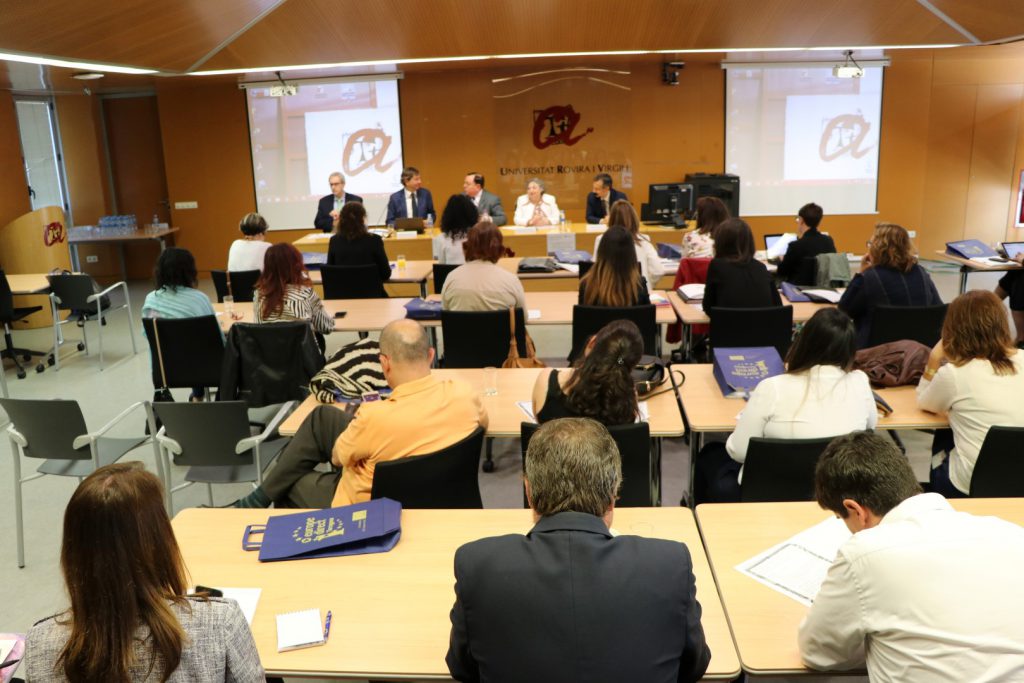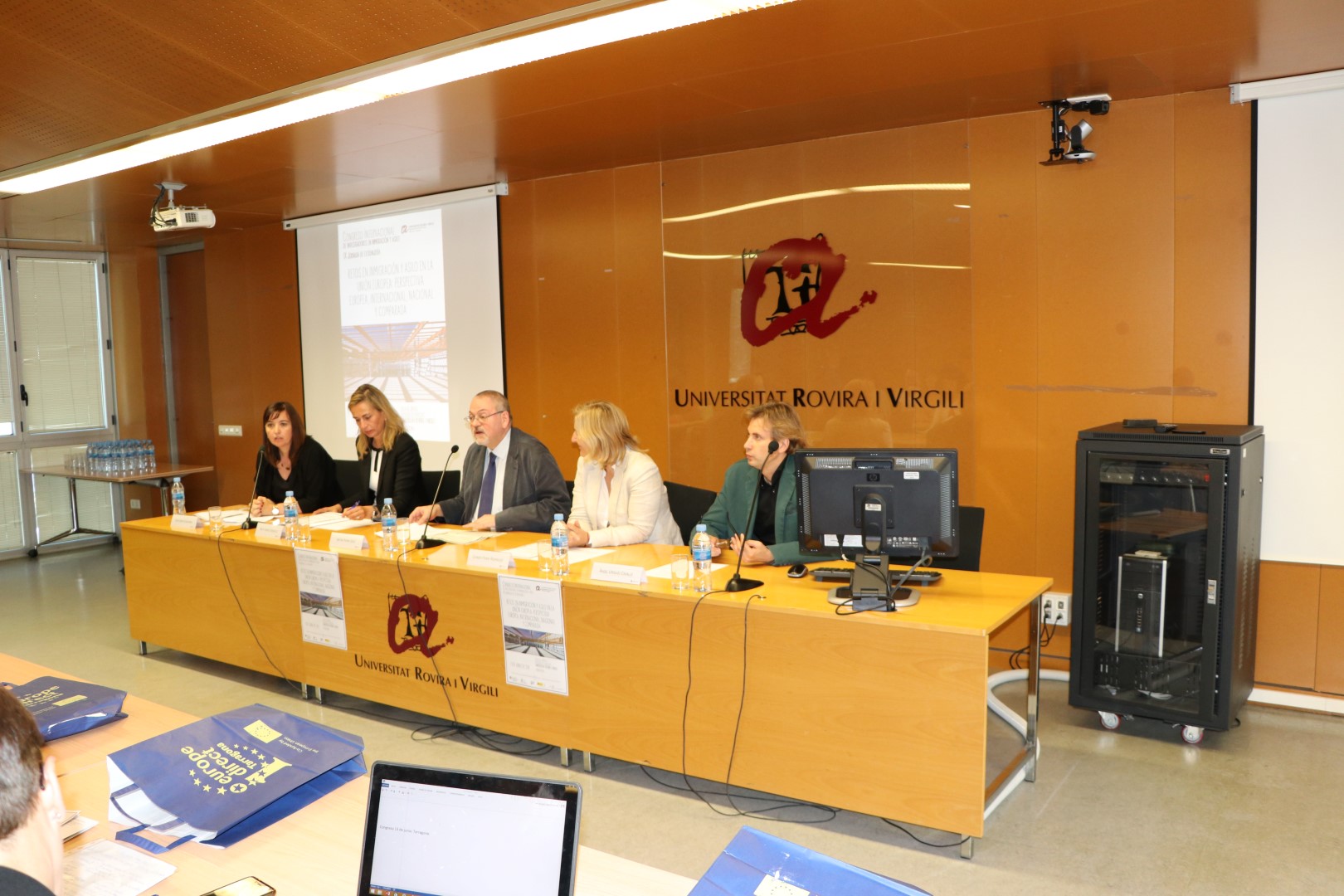14/06/2019
The international conference of researchers into immigration and asylum in the EU arrives in Tarragona for the first time
Organized by the Department of Private, Procedural and Financial Law, the conference has brought together more than 60 experts in the field to discuss the challenges for the future

Organized by the Department of Private, Procedural and Financial Law, the conference has brought together more than 60 experts in the field to discuss the challenges for the future
Researchers, professors, students, lawyers and graduates have attended and participated in the International Conference of Researchers into Immigration and Asylum which has taken place at the Catalunya Campus of the URV and has coincided with the 9th Seminar on the Status of Foreigners.
It has been a day of debate and reflection on immigration, asylum, refugees, citizenship and the free movement of people and the challenges that these issues raise for the European Union. Topics discussed include legal and illegal immigration, integration, measures of international protection, the refugee crisis, human rights and the law, European borders, and the barriers to free movement of people and their consequences for family unity, among others.
The conference has been organised by the Department of Private, Procedural and Financial Law and directed by one of the department’s researchers, Diana Marín. It has brought together experts in the field to engage in interdisciplinary and multidisciplinary debate on the positive and negative aspects of these questions with the additional aim of transferring academic knowledge to professional practice.

José Alarcon, Director General of Migrations, kicked off the discussions by talking about the perspectives of migration policies in Spain and Europe. He talked about the 5.4 million foreigners who live in Spain and stated that, in addition to analysing who they are and how they came here, we also need to know what will happen in the future regarding migrations. He explained that many Spaniards who left the country because of the economic crisis are returning and also that in a few years there will be an urgent need for workers to fill vacant jobs, particularly because in ten years’ time half of the active population will be retired.
After his talk, the discussion turned to topics such as the rights of immigrants, European immigration policies, integration and conflicts in public and private spaces, Brexit, cross border mobility and the protection of immigrant girls and women, among many other subjects.
